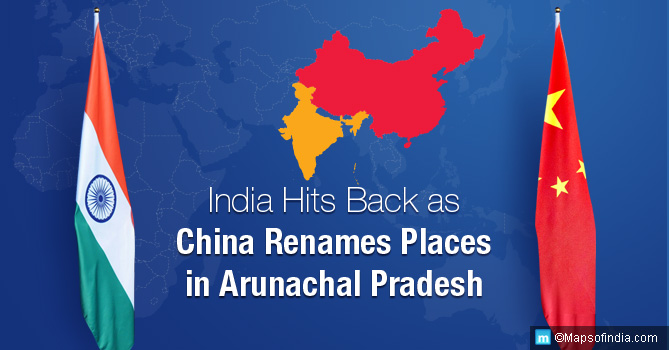Over reaction to anything backfires and China knows this truth very well. The manner in which Beijing has angrily reacted to the Dalai Lama’s recent week-long visit to Arunachal Pradesh, India’s Northeastern state, it doesn’t appear China believes in patience or diplomatic negotiations to iron out problems. First, it threatened India through its mouth piece China Daily newspaper that “if New Delhi Chooses to play dirty… Beijing should not hesitate to answer blows with blows.” Then China’s Foreign Ministry spokesman warned India that Beijing would take necessary measures to defend its core national interests. When this threat and hullabaloo didn’t work, China renamed six places in Arunachal Pradesh in an attempt to further legitimize its claim over this area of India’s North-East region. According to the Chinese media, the country’s Ministry of Civil Affairs undertook to renaming on April 14, almost three days after the octogenarian Buddhist monk visited Tawang and other areas of Arunachal Pradesh. The official names given to Arunachal Pradesh’s area are: Wo’gyainling, Mila Ri, Qoidengarbo Ri, Mainquka, Bumo La and Namkapub Ri. However, hitting back at China with harder punches, Ministry of External Affairs spokesperson Gopal Baglay said, “Assigning invented names to towns of your neighbour does not make illegal territorial claims legal. Arunachal Pradesh is and will always be an integral part of India.” He also said that China’s Communist government has not communicated anything officially to India. But that doesn’t mean India should put the issue under the carpet. New Delhi needs to put all diplomatic options on the table to make China understand that it is unnecessary to ratchet up the issue.
Complex boundary problem
In fact, problem with China is that it tries to convert all imaginary issues related to boundary into legitimate claims. Tibet was never a part of China, rather it was occupied by Beijing in the 1950s. In 2008, the Dalai Lama said on the record that “Arunachal Pradesh was a part of India under the Simla Agreement signed by Tibetan and British representatives (in July 1914).” But China rejects the Simla Accord, saying that the Tibetan government was not sovereign and therefore, did not have the power to conclude treaties. This development started cropping after the Communist Party of China under the leadership of Mao Zedong took over reign of power in its hand in 1949 after years of bloody revolution in which thousands of people were killed. With the arrival of the Communists, China was turned into a People’s Republic in place of Republic of China, which actually maintained neighbourly relations with all the countries, including Tibet.
Can China create problem for India?
It is feared that China together with its all-weather friend, Pakistan can create problems for India in Kashmir which is boiling in fresh tension since 2016 when terrorist and JKLF commander, Burhan Wani was killed by security forces. But China also knows that if it exacerbates tension with India in Kashmir then the on-going multi-billion dollar China-Pakistan Economic Corridor (CPEC) which crisscrosses through Pakistan occupied Kashmir could suffer an incalculable damage. The CPEC is a part of Chinese President Xi Jinping’s One Belt One Road project. China has invested hugely on this project. With total three trillion dollar in its possession of which two trillion dollar is in bond, Beijing would not be able to bear any damage on this project if it suffers due to India-China tension. A further strain in bilateral engagement between the two nations would impact the project heavily. Also, China’s economy is not in good health. Its growth is stagnant at 6.7 to 6.8 percent for the past three years. In comparison, India’s GDP is hovering around 7 percent.
Can China wage war against India?
Despite having more military muscle than India, China’s People Liberation Army is not battle hardened. It has fought only one battle with India in 1962 and that too, experts refuse to describe it other than border skirmish. In contrast, Indian army is battle hardened; it has fought three full-fledged wars with Pakistan besides, Kargil skirmish of 1999. Secondly, China’s majority of defence equipment is from Russia; it has developed some of its defence technology by doing reverse engineering of Soviet era equipment. While India has its equipment from Russia, France, the US and Israel and as such, has superiority over China in terms of latest defence technology. Of them all, India is a nuclear power country with its missiles capable enough to hit Beijing and other parts of China. Hence, it would be foolhardy if China provokes India for war.






